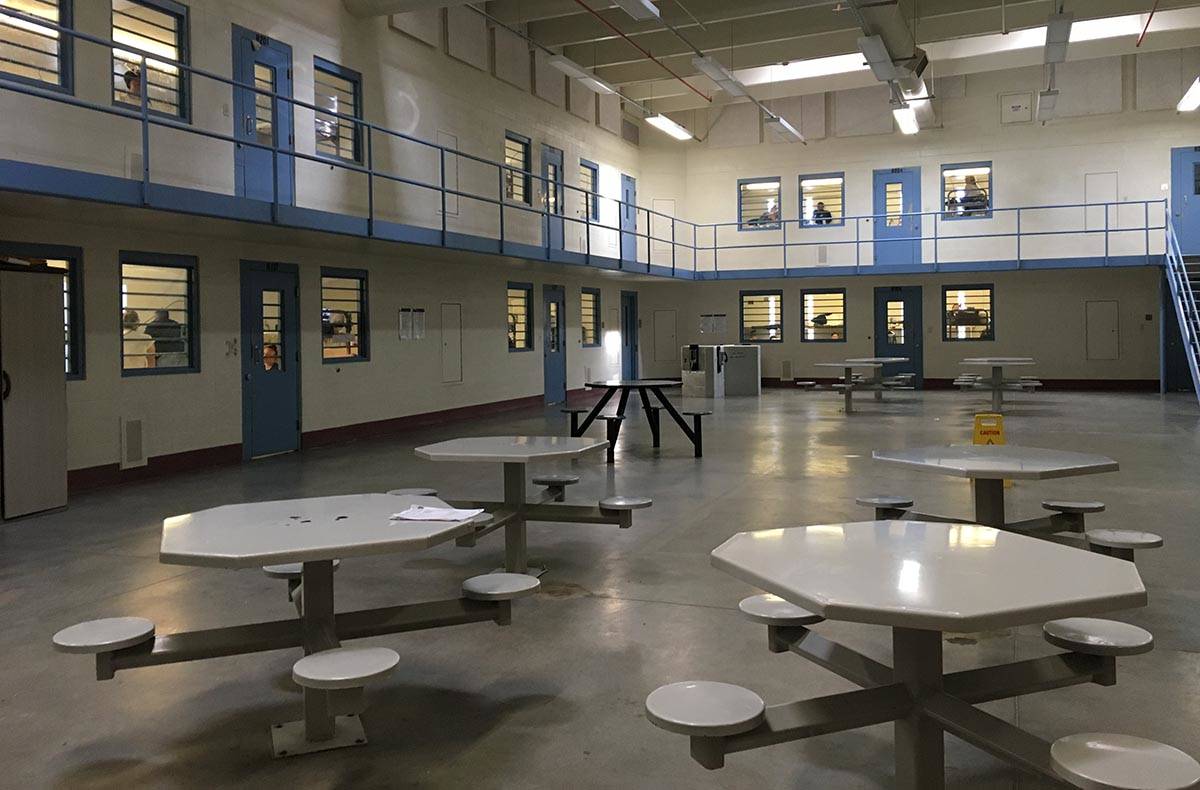
The Nevada Department of Corrections will resume visitation beginning May 1 and has released its protocols for the process.
NDOC said these protocols will be comprehensively re-evaluated at least every 30 days in order to publish cohesive updates before the start of each calendar month. Notifications will be posted within each housing unit advising the offender population of visiting room operations. Family members and friends may access the NDOC website for visiting notifications and updates.
In Phase 1, all visits will be scheduled by appointment only. In the event the electronic platform experiences technical difficulties, family members may contact the institution visiting officer at the number provided on the NDOC website. Inmates will be allowed visits once every two weeks or once a month, determined by the facility administration, with a maximum of two visitors per inmate.
Children must be at least 5 years old to visit, with a birth certificate required; visitors may only visit one session per day; and visits will be limited to two hours, with no exceptions. Visitors are required to arrive 45 minutes before their visit.
Inmates on medical isolation or quarantine are prohibited from in-person visitation. On occasion, visitation may be canceled. Visitors are encouraged to call the day before their scheduled visit to verify visiting has not been canceled.Visiting sessions are subject to cancellation without notice based on the safety and security needs of the institution.
Inmates must wear an N95 mask throughout the duration of the visit, and all visitors must wear a soft mask for the entirety of the visit. Visitors should check with the particular institution they want to visit for specific dates and times.
Visitors arriving less than 30 minutes prior to their scheduled visiting time will not be permitted to visit. Visitors unable to wear a face mask will be denied entry. Face masks must be properly worn, covering the nose, mouth and chin.
The pre-screening process includes a COVID-19 assessment in accordance with current NDOC medical directives: NDOC medical staff will screen all visitors prior to entry into the institution; visitors must complete a health questionnaire, with all questions requiring an affirmation of “No” prior to entry; any visitors who exhibit flu-like or concerning symptoms will be denied entry; and the BinaxNOW 15-minute rapid test will be administered, and test results must be negative or entry will be denied.
Visitors will be directed to a designated area immediately after the COVID-19 rapid test is administered to wait and then return to the institution or facility visiting check-in desk or designated waiting area indicated by NDOC staff to await test results. Visitors waiting for their results will maintain established social distancing separation and stand in designated waiting areas and/or marked areas until called by NDOC staff.
Any visitor or inmate refusing to be tested or complete any of the pre-screening processes, or displaying any flu-like symptoms will be denied visitation.
During visitation, no physical contact will be permitted at any time before, during or at the end of each visiting session. Social distancing will require visitors to remain seated at their designated table at all times with no physical contact during the visit. Visitors and/or children who become unmanageable, disruptive, or fail to comply with safety protocols will have their visit terminated.
Visitors and offenders at assigned tables will be separated by at least 6 feet from each other. Visitors and offenders at a single table will be separated from each other by an acrylic barrier during the entire visit.
Bathroom facilities will not be available in the visiting room, and visitors requesting to utilize the restroom will be escorted by NDOC staff to the institution or facility lobby. Based on staffing and/or visiting session start/end times, visitors may not be permitted to re-enter the visiting room.
Vending machines and children’s play areas will not be available during visiting sessions.
After a 30-day visitation trial, when a facility reaches a 75% vaccination rate, it will move to Phase 2, which loosens the restrictions. Once a facility reaches an 80% vaccination rate, allowing for up to 10 days to review data and ensure low levels of COVID-19 positive cases, it will move to Phase 3, which removes the restrictions.